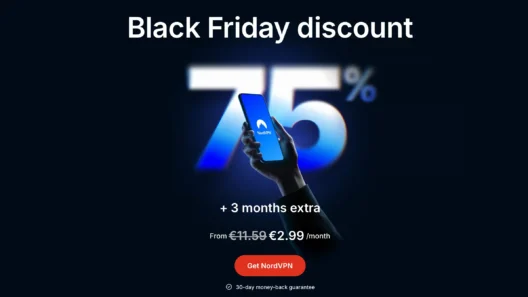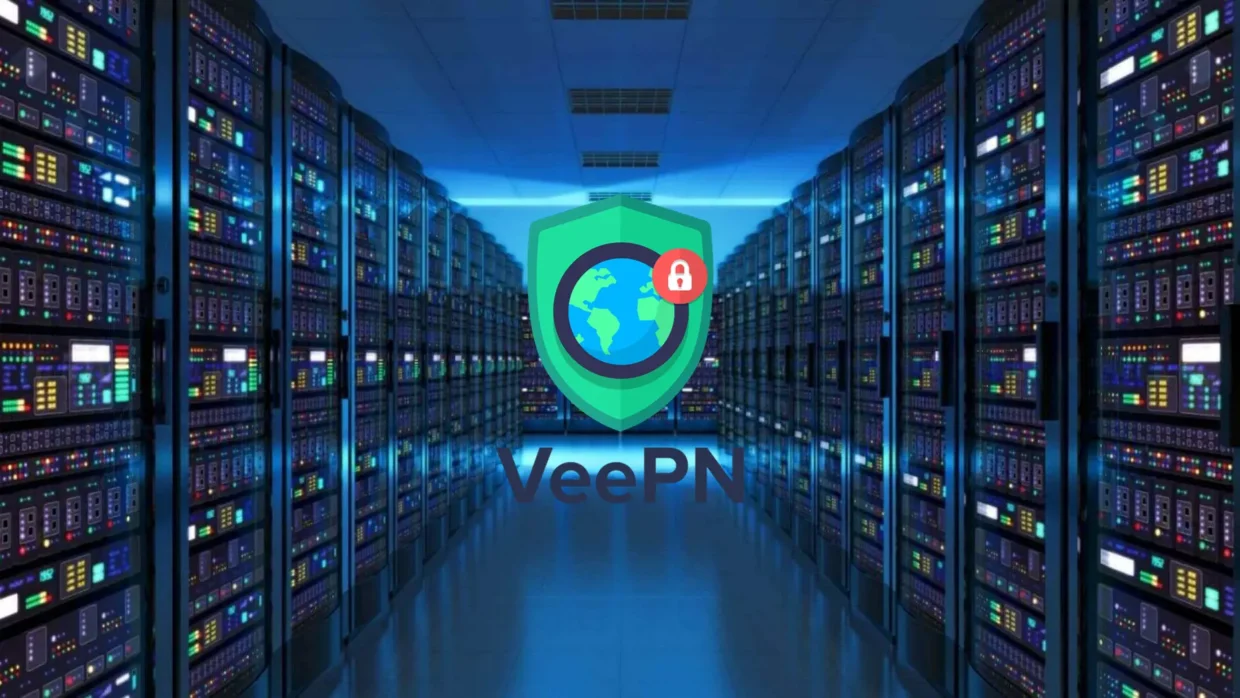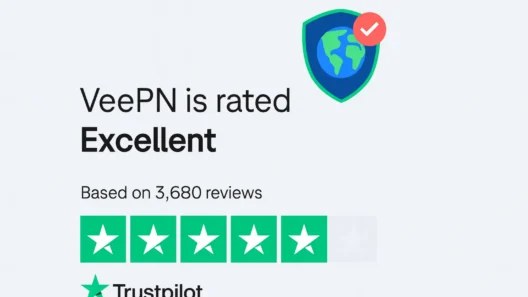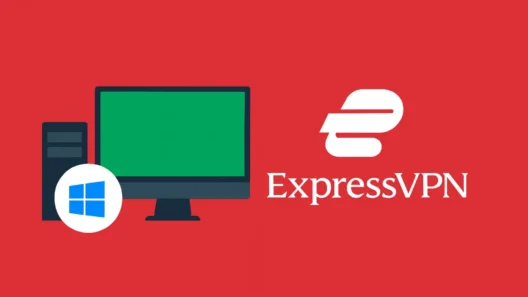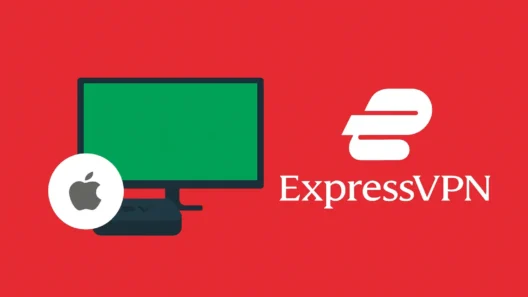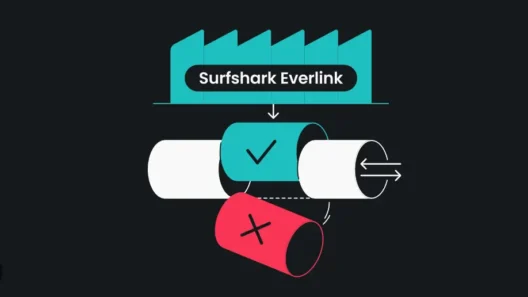I used to think all VPNs were more or less the same. You connect, get a different IP, and boom – privacy and speed, right? That’s what I believed… until I really looked under the hood.
It turns out, the entire experience of a VPN comes down to the servers. How they’re built. Where they’re located. And how they’re managed. VeePN? Their server setup seriously surprised me – in a good way.
You Can’t Fake a Fast VPN
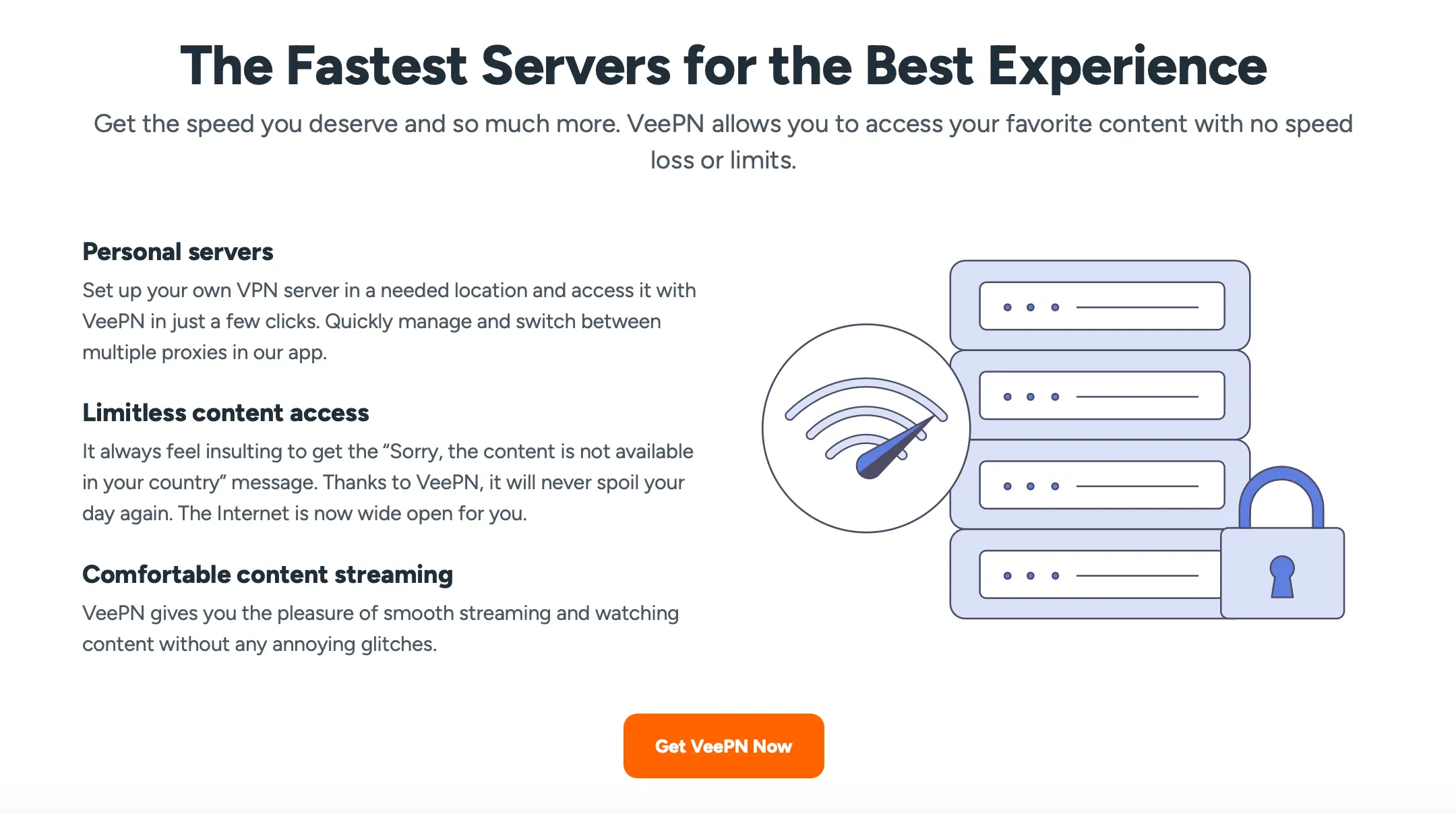
Let’s just say it: you either have the infrastructure or you don’t. VeePN runs over 2,500 servers in 60 countries, which sounds cool on paper, but what impressed me more is how those servers are actually deployed.
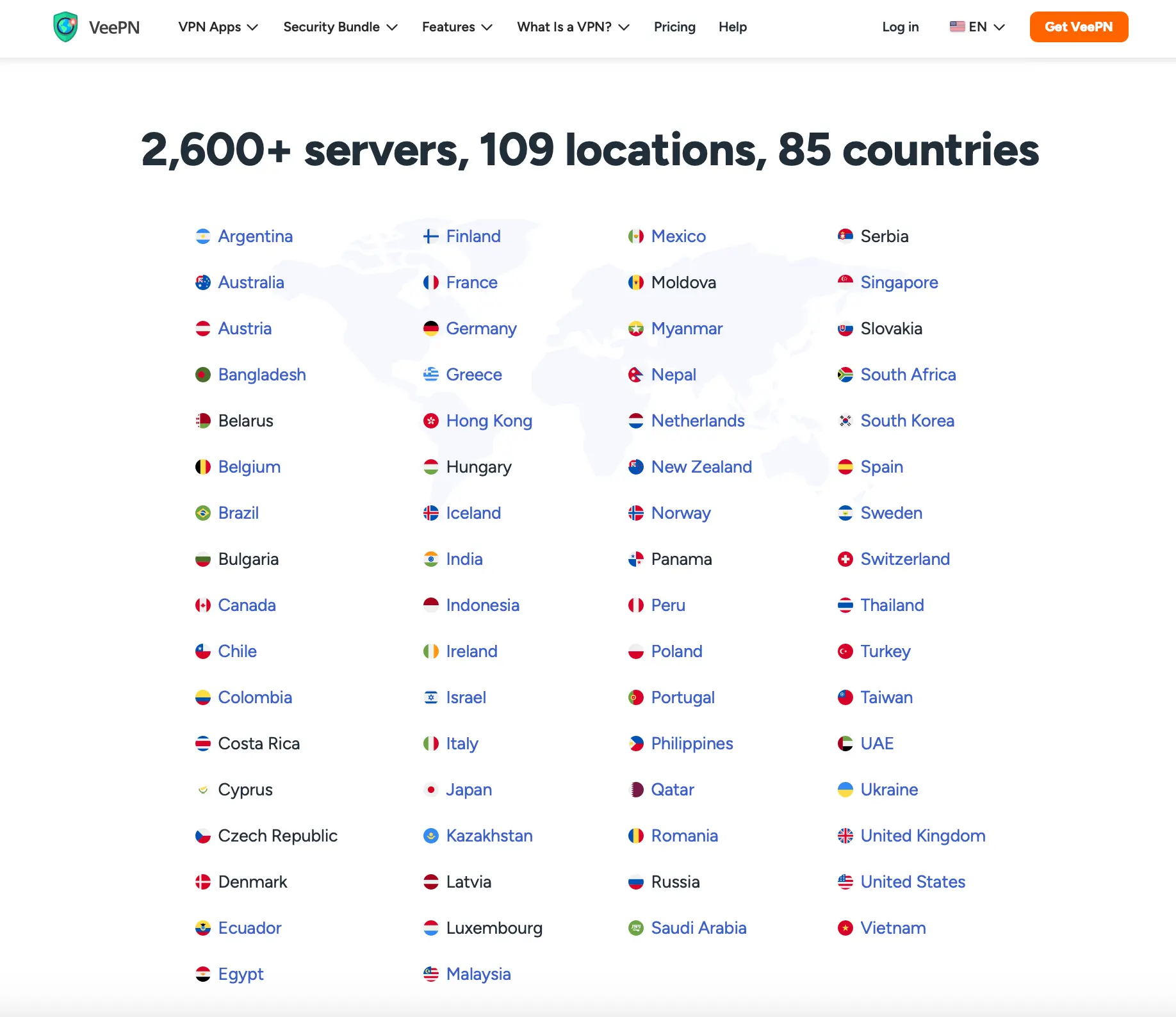
They’re not renting some sketchy VPS in someone’s garage. Most VeePN servers are either bare-metal machines or hosted in Tier-1 data centers. That means you’re not competing with crypto miners or shady bots. That alone bumps up speed and stability big time.
I tested connections from Europe, the US, Asia… and the consistency blew me away. No “reconnecting” loops. No slowdowns during peak hours. Just smooth performance.
Physical vs Virtual: VeePN’s Honest Approach
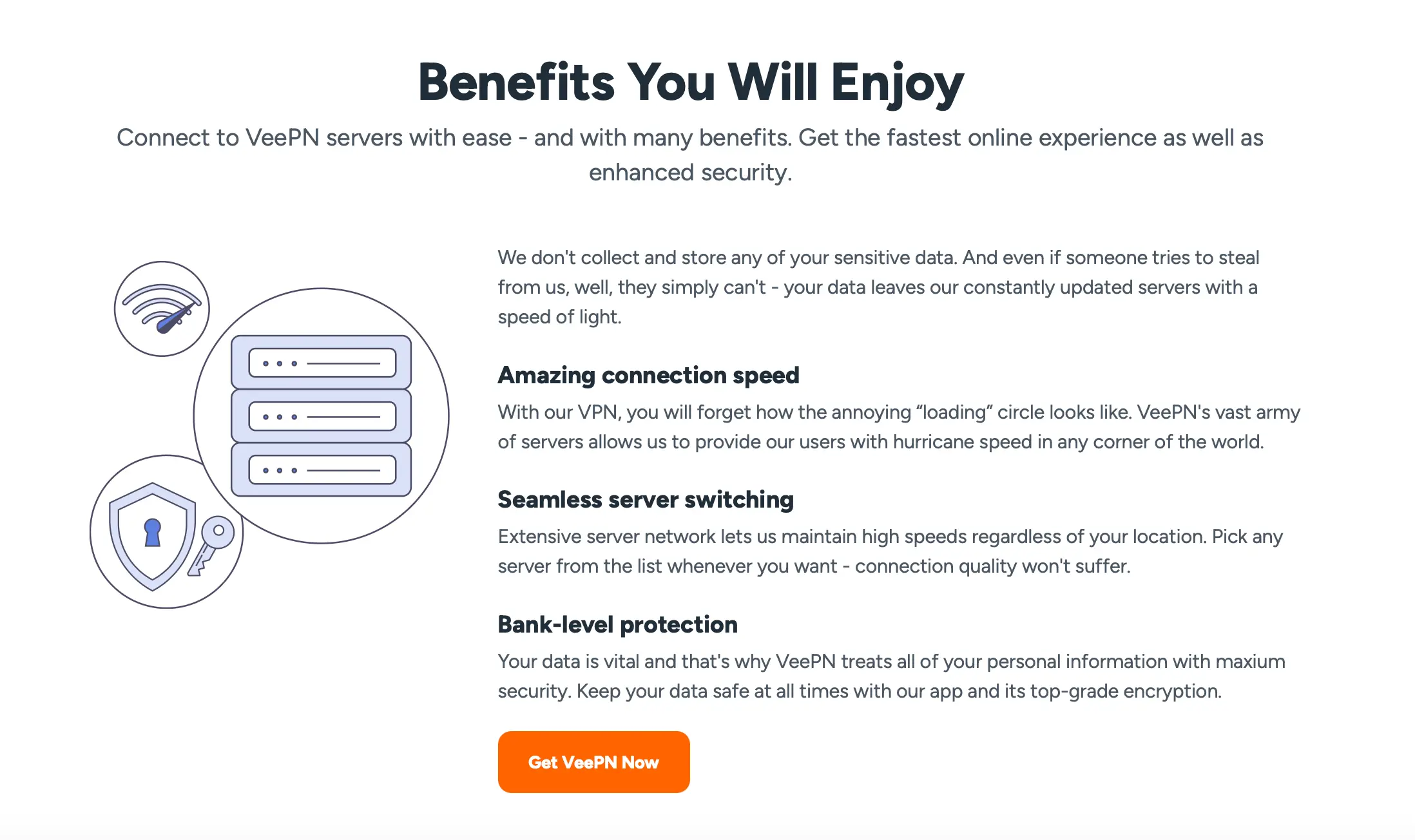
Here’s a thing most VPNs won’t admit: when they claim “100+ countries,” they’re often bluffing. Those so-called servers? Many are just virtual locations – the IP says India, but the actual server is chilling in Frankfurt.
VeePN? Way more transparent. Their app labels each location clearly. You can choose between physical servers (for accuracy and speed) and virtual ones (for bypassing tougher geo-restrictions).
When I wanted to stream UK content, I used a physical UK server. When I tested access to platforms that were picky about location, I jumped on a virtual server and it worked without a hitch.
Coverage That’s Actually Smart
It’s not just about having servers. It’s about where they are and how they’re distributed. VeePN doesn’t overload a few hubs like the US or Western Europe. Their network is well-balanced, with great coverage in:
| Region | Countries Covered | Server Type |
|---|---|---|
| North America | US, Canada, Mexico | Physical & Virtual Mix |
| Europe | UK, Germany, France, Netherlands | Mostly Physical |
| Asia | Japan, Singapore, India, UAE | Mixed |
| South America | Brazil, Argentina, Chile | Mostly Virtual |
| Africa | South Africa | Virtual |
| Oceania | Australia, New Zealand | Physical |
This setup helps with load balancing, smart routing, and faster speeds — even in less common regions.
Streaming, Speed & No Buffering
Let’s be real – most of us want VPNs to watch stuff. And nothing kills the vibe faster than buffering.
VeePN’s network is built for streaming. I tested Netflix, BBC iPlayer, Hulu, and YouTube TV – no buffering, instant startup, solid HD quality.
What helps? They rotate IPs and use obfuscation, so those annoying proxy errors (“Looks like you’re using a VPN!”) don’t even pop up.
Security Built Into the Network
This part gets ignored too often. VeePN’s network isn’t just fast it’s locked down:
- AES-256 encryption on all servers
- Double VPN routing (if you want extra privacy)
- Private DNS and DNS leak protection
- No-logs policy that’s enforced server-side
- RAM-only servers – no data survives a reboot
If your tunnel ever breaks (rare, but hey), their kill switch cuts traffic instantly. No leaks, exposure and no drama.
Speed Isn’t Just Bandwidth
Here’s the truth: “unlimited speed” is marketing fluff. Real speed depends on:
- Server density (how crowded it is)
- Hardware quality (bare-metal vs cloud)
- Routing and peering (how your data travels)
- Server location (proximity = speed)
VeePN nails all of that. Their servers are high-grade, and their routing logic is smart. I had low ping while gaming, stable speeds while torrenting, and zero issues during long Zoom calls.
All the Extras That Actually Work
Here’s what people forget: even VPN add-ons like tracker blockers or breach alerts depend on the server architecture.
And VeePN’s extras work because their servers handle them efficiently:
- Email protection
- Ad/tracker blocking at DNS level
- AI-powered chatbot (runs through their private network)
- Breach scan tools
It’s not just about what they offer – it’s how well it runs. And VeePN? Everything felt snappy and private.
Who This VPN Server Setup Is Perfect For
Let’s be honest: if you just want basic protection at your favorite café, any free VPN will do.
But if you:
- Stream across multiple regions
- Travel internationally
- Use P2P networks
- Manage smart home devices
- Run multiple accounts or profiles
- Care about privacy AND speed
…then VeePN’s server setup gives you a real advantage.
My Verdict
After trying way too many VPNs, I can say this for sure: you don’t need the most expensive VPN, you need the smartest server setup.
VeePN didn’t just rent some servers and slap a label on them. They actually invested in performance, privacy, and transparency and you can feel that difference the moment you hit “connect.”
If you want real speed, real control, and real privacy, this setup’s worth checking out.
Frequently Asked Questions About VeePN’s Server Performance
Does VeePN actually let me choose between physical and virtual servers?
Yes, and that’s one of the things I liked most. In the VeePN app, each server location is clearly marked as either physical or virtual. That way, you know exactly what you’re connecting to – no guessing, no fake IPs.
Is VeePN fast enough for streaming Netflix or Hulu in HD?
Totally. I tested Netflix (US, UK, Japan), Hulu, and even YouTube TV. No buffering, quick load times, and full HD quality. VeePN rotates IPs and uses obfuscation, so you don’t get blocked by streaming services.
What kind of security do VeePN servers use?
VeePN servers come with AES‑256 encryption, a no-logs policy, private DNS, and even RAM-only servers. If you’re serious about privacy, that combo gives you peace of mind – even if the connection drops, your data stays protected.
How does VeePN keep speeds stable across different regions?
It’s all about smart distribution and load balancing. Their 2,500+ servers aren’t bunched up in one area – they’re spread out globally. So even in Asia or South America, I didn’t notice any lag or drop in speed.
Can I use VeePN for torrenting without risking my IP?
Yes, and safely too. VeePN supports torrenting on P2P-friendly servers and combines that with DNS leak protection and a kill switch. So even if something goes wrong, your real IP won’t leak.







